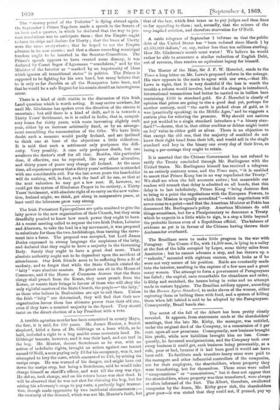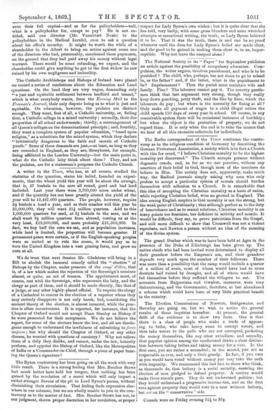The secret of the fall of the Albert has been
pretty clearly revealed. It appears, from statements made at the shareholders' meetings, that the late Mr. Kirby, the manager, was entitled, under the original deed of the Company, to a commission of 5 per cent. upon all new premiums. Consequently, new business brought him profit, while new liabilities brought him no loss. Conse- quently, he favoured amalgamations, and the Company took over every business it could get, such business being presumably, as a rule, poor or bad, because if it had been good it would not have been sold. To facilitate such transfers heavy sums were paid to the managers and other influential controllers of the companies, not for their employers, the shareholders, whose property they were transferring, but for themselves. These sums were called "compensations" or "commissions," but it does not appear that the shareholders, whose property was thus transferred, were always or often informed of the fact. The Albert, therefore, swallowed companies by the dozen, Mr. Kirby grew rich, the shareholders grew poor—it was stated that they could not, if pressed, pay up
even their full capital—and as for the policyholders—well, what is a policyholder for, except to pay? He is not en- titled, said one director (Mr. Vansittart Neale) to the policyholders in the Medical Invalid, even to ask a question about his office's security. It might be worth the while of a -shareholder in the Albert to bring an action against some one of the directors who had, presumably, sanctioned these payments, on the ground that they had paid away his money without legal warrant. There would be some refunding, we expect, and the shareholder could give anything he got to the first widow he saw ruined by his own negligence and imbecility.































 Previous page
Previous page